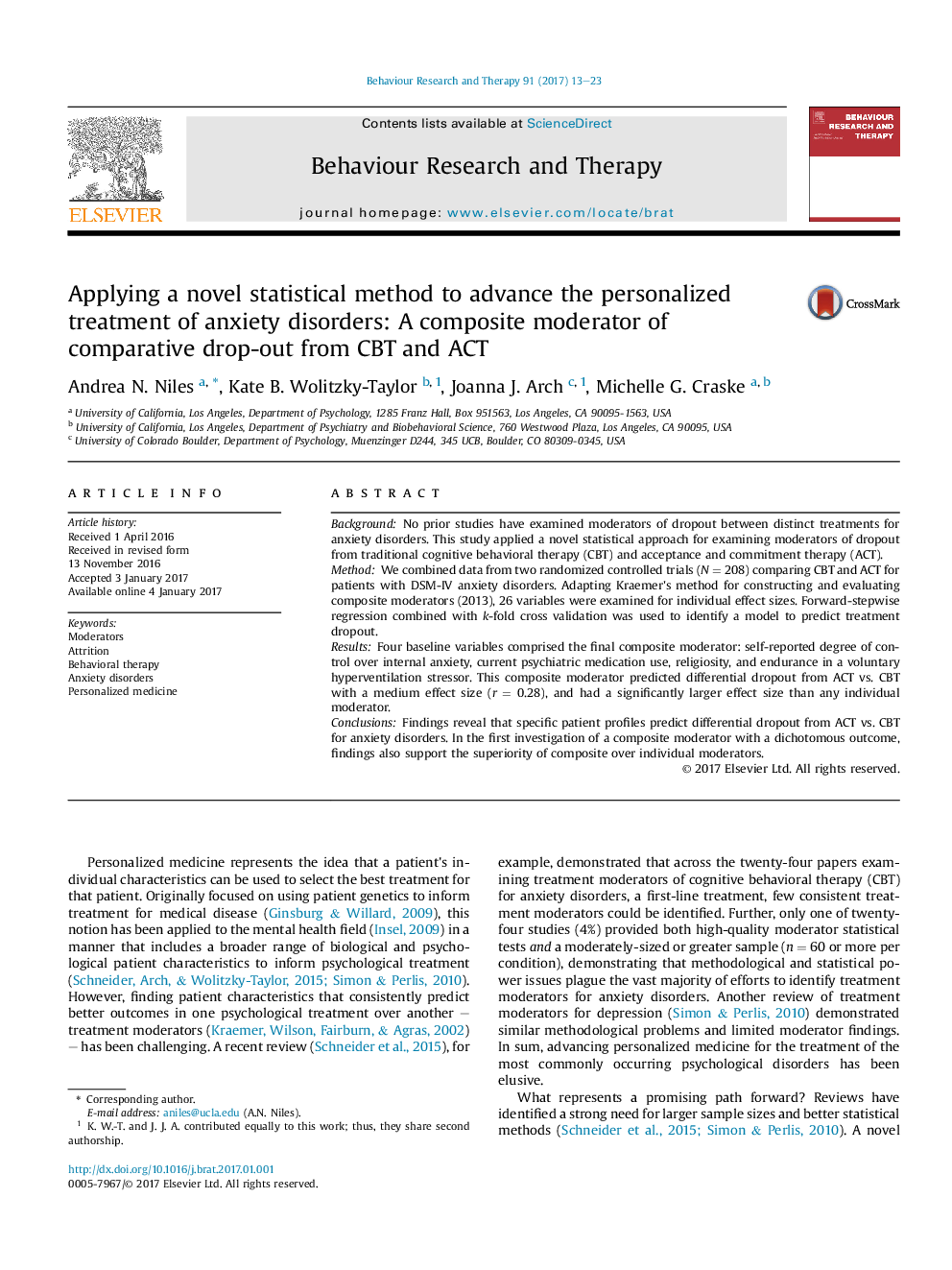| Article ID | Journal | Published Year | Pages | File Type |
|---|---|---|---|---|
| 5038210 | Behaviour Research and Therapy | 2017 | 11 Pages |
â¢No research exists on moderators of attrition from therapy for anxiety disorders.â¢We identified baseline patient characteristics moderating dropout from ACT vs CBT.â¢We used a novel moderator approach for creating composite moderators.â¢We combined 4 patient characteristics to form a composite moderator of attrition.â¢Our composite moderator had a larger effect than any individual moderator.
BackgroundNo prior studies have examined moderators of dropout between distinct treatments for anxiety disorders. This study applied a novel statistical approach for examining moderators of dropout from traditional cognitive behavioral therapy (CBT) and acceptance and commitment therapy (ACT).MethodWe combined data from two randomized controlled trials (N = 208) comparing CBT and ACT for patients with DSM-IV anxiety disorders. Adapting Kraemer's method for constructing and evaluating composite moderators (2013), 26 variables were examined for individual effect sizes. Forward-stepwise regression combined with k-fold cross validation was used to identify a model to predict treatment dropout.ResultsFour baseline variables comprised the final composite moderator: self-reported degree of control over internal anxiety, current psychiatric medication use, religiosity, and endurance in a voluntary hyperventilation stressor. This composite moderator predicted differential dropout from ACT vs. CBT with a medium effect size (r = 0.28), and had a significantly larger effect size than any individual moderator.ConclusionsFindings reveal that specific patient profiles predict differential dropout from ACT vs. CBT for anxiety disorders. In the first investigation of a composite moderator with a dichotomous outcome, findings also support the superiority of composite over individual moderators.
